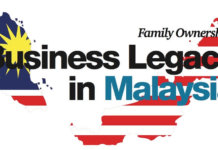Germany is a nation well-known for its successful family businesses. Among a cadre of international industry giants, it counts world renowned family firms such as retail behemoth Aldi, agricultural machinery producer Claas, and mechanical engineering expert Voith; all leaders in their respective fields. Ranging from micro-businesses to fully-fledged conglomerates, the family ownership model has been replicated across the country’s industrial landscape. The might of German family business has long been speculated to be the anchor for the nation as an economic stalwart. The country’s resilience during periods of financial crisis is owed largely some say, to the charge family businesses provide.
In defiance of a corporate culture that often correlates business size to effectiveness; numerous German family businesses have been industry leaders for several generations. It is mostly the mid-sized family businesses in the country that have offered continually potent contributions to the nation’s economy. As compared to neighbouring markets, Germany’s activities in agriculture and the services industries are rather low as the economy is based mostly in industrial production and technology. Regardless of which sectors garner the most capital, Germany’s leading companies are to a great majority family-owned.
While some families still provide material guidance in the operation of their respective companies, many German family businesses are no longer managed by family members. These family members instead participate solely as owners. Professor Olaf Plötner, Dean of Executive Education, European School of Management and Technology (ESMT) and Managing Director, ESMT Customised Solutions, Germany, spoke with Tharawat magazine on why owner values are key for family business success and what will continue to make the family ownership model last.
What are the advantages family ownership brought German firms?
Family ownership is not an advantage per se. It still always depends on the industry a business is in. Germans are usually very strong in industry and technology. Leading a successful technology business requires a long-term strategy because you need a lot of time consuming research and development. This is why family businesses are often a very good fit. There might be industries where short- term orientation is right, but if you always try to further improve your technology products, thelong-term dedication that is often intrinsic to family businesses, is very important in order to become successful.
Under what circumstances is family ownership a sustainable business model?
It is not necessarily determining whether the company is family-owned or not; it always depends on the values of the owners whomever they may be. There might be non-family owners that are very long-term oriented, and there might be family members that are short-term oriented. However, usually the reverse tends to be the case. You usually have values in a family business that are directed towards the sustainability of the company in the future. If this attitude is not there then it might be better for family ownership to be discontinued. I can say that in technology-dominated companies, long-term orientation is a significant advantage. And more often than not we see this in family owned businesses.
When does the family ownership model become redundant?
If you have owners or managers that are not aligned with the overall strategy the company requires, then maybe there is a misfit. But it’s interesting that very often in German family-owned mid-sized companies, there’s a very good fit. This may be due to the fact that “family-owned” means that there is a strong commitment and that you will find that even employees become more loyal. An example is the Claas company, which produces agricultural machinery; I believe that only about 1% of its employees leave them per year. High commitment of employees has to do with the degree of commitment of owners and top management. This often goes hand in hand with family-ownership; a family is naturally highly committed and invested in its business which translates in high employee loyalty. It is my personal opinion that this high level of commitment that families are able to invoke in their employees lies at the heart of their success.
Is succession from one generation to the next the right moment to reconsider family ownership?
Yes. In the old monarchies, it was often the case that when there was a strong king at power, then chances were that his son was not as competent. Sometimes leadership skills skip a generation. It is very hard to have stability and excellence in management and ownership in every family generation. To transfer important values from one generation to the next is difficult. The next generation naturally has to change the business because the world is changing. They have to adapt. And that means that they have to change what the last generation has built, and there is a lot of potential for conflict there. In Germany, we have many family companies that are now successful in the third generation. It is not an easy goal to achieve.
Is the family ownership model particularly suited to survive in times of economic distress?
My hypothesis is that we would find that the owner’s values are essential to surviving a crisis and that there are more family businesses than other companies that achieve this. To me there seems to be a marked tendency. Indeed, in the media this is often mentioned as one of the reasons why Germany is so well off or survived the last crisis so well. But it’s a hypothesis. We have this big number of mid-sized family businesses that have shown agility in difficult times. But again, in the end, it depends on the person who is in charge, and the value system they stand for.
Do you think that the family ownership model will persist?
Clearly, yes. But to me family business sustainability depends a lot on the family’s ability to globalise: Firms that are not able to globalise will disappear. Family businesses in Germany are globally active because being export-oriented is second nature to us. We have been doing it for centuries. However, the question then is to be competitive in increasingly consolidating markets abroad. How do you compete with the multinationals abroad that usually take up near to 80% of market shares? It is advisable for families to cover niches where they can show their flexibility. This is exactly where I see family businesses have a huge advantage. So yes, the family ownership model is a model of the future as long as families understand how to globalise.
Tharawat Magazine, Issue 16, 2012
















